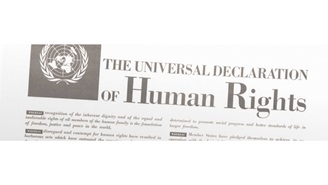Redefining the purpose of a corporation – theory or practice?
In August 2019, the U.S. Business Roundtable (BRT), a non-profit association composed of corporate CEOs, issued a statement redefining the purpose of a corporation. The BRT has defined a corporation’s purpose as working for the benefit of all stakeholders, such as customers, employees, suppliers, communities where the company operates, as well as shareholders. Drafted following months of consultation with CEOs and members of the political, academic and NGO sectors, the statement was signed by 181 CEOs, or 95% of BRT members (though not by the companies they represent).
Implications of Consolidation in the Pharma and Biotech Sector
Increasing consolidation within the pharma and biotech industry has triggered questions about the ultimate impact on the industry, as well as on its stakeholders. With increased competition from generic manufacturers and rising drug development costs, several pharmaceutical companies have engaged in M&A as a defensive strategy to offset losses in market share and gain cost savings. While M&As are typically scrutinized by authorities for harming competition, another question has emerged: does consolidation harm innovation and ultimately the industry’s capacity to develop lifesaving drugs?
Cyber Security and Data Privacy: The Downsides of the Network Effect
As investors assess their portfolios and develop engagement approaches, considering data privacy and security risks alongside traditional fundamental factors may be necessary to develop a fuller understanding of the risks facing a company’s enterprise value. In many cases, these risks may fly under the radar until there is a systemic failure, at which point it may already be too late to effectively mitigate the fallout.
A hope for stability in South Africa
During GES’ recent Emerging Markets Engagement trip to South Africa, we held several meetings with mining companies and, for the first time, with the South African government’s Department of Mineral Resources (DMR) and the Minerals Council South Africa, the mining industry’s trade body.
Searching for Solutions to Ocean Plastics
Over the past year, the public, regulators and investors have expressed growing concerns about the problem of ocean plastics. While some organizations have pledged to address the issue, our analysis of 4,575 companies in the sectors that generate most of the plastic waste on the planet reveals that less than 1% of these firms mention the phrase “ocean plastic” or “ocean health” in relevant corporate documents. This finding suggests a low level of strategic awareness about ocean plastics among companies exposed to the issue despite clear interest among consumers, law-makers and investors.
Palm Oil and Deforestation: a missed window of opportunity for the RSPO?
In August 2018, 90 institutional investors representing USD 6.7 trillion in assets sent a letter to the Roundtable on Sustainable Palm Oil (RSPO) expressing their concern over deforestation and the disconnect between leading corporate policy commitments and the RSPO standards.
Social Media Regulation: Latest developments and future trends
The internet’s burning issues have taken center stage, as regulators globally push for a crackdown on social media. In the wake of the 2016 US presidential election, tech companies such as Facebook, Twitter, and Google were criticized for having allegedly permitted the propagation of so-called “fake news” on their platforms.
How Prepared are Australian Companies for the Modern Slavery Act?
Australia is being scrutinized for lagging on climate action and for a string of scandals in its financial sector, but the country will soon be a leader in fighting human rights abuses and modern slavery practices, as it is set to become one of few countries in the world to adopt a historic Modern Slavery Act (MSA).
Whistleblower Protections in Europe: Considerations for Investors
All organizations have hidden vulnerabilities. Whistleblowing exposes fraud and other financial crimes, thereby giving society an opportunity to act against misbehaviour. Globally, whistleblowers have helped save lives, recover billions of dollars, and protect the environment and local communities.
ESG Spotlight | Assault Weapons: assessing exposure to the firearms trade
The Parkland shooting prompted a swift reaction from many influential corporations and investors. A growing list of corporates, including Delta Air Lines, Enterprise, Symantec and First National Bank of Omaha, have cut ties with the National Rifle Association.
ESG Spotlight | The rise of gender equity: momentum building in key markets
A recent wave of popular movements has drawn unprecedented attention to the longstanding issue of gender equity. In cities around the world, women have marched to demand political and economic equality, while the #MeToo movement has amplified calls for an end to discrimination and harassment.
Glyphosate and Non-Selective Herbicides – Are companies managing regulatory risks?
On 10th August 2018, Monsanto (acquired by Bayer in June 2018) was ordered to pay USD 289 million in damages, in the first lawsuit alleging the herbicide glyphosate causes cancer to go to trial in the US. As of July 2018, the number of outstanding lawsuits related to glyphosate reported by Bayer had jumped to 8,000.
Energy and Climate Policy in Australia: Out of Touch and Out of Time?
Just before the leadership spill two weeks ago, Australia’s former prime minister Malcolm Turnbull discarded the carbon emissions reduction target contained in the National Energy Guarantee (NEG). The proposed legislation was aimed at reforming the country’s electricity market and addressing the “energy trilemma” of ensuring emissions reduction, grid reliability and power price affordability.



















